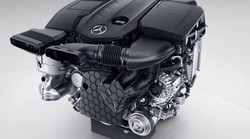Stranica koju ste tražili ne postoji.
Možda ste tražili:
Renault Morphoz are two cars in one - It may either be a compact city SUV and a large SUV for long distances - with adequate range
Universality is the concept that Renault is betting on in the future. At least this can be inferred from their latest concept, called Morphoz, which …
Honda Jazz now electrified in every option
Bew solutions also in the infotainment system.
Hydrogen power BMW to fuel company's future
Hydrogen is the way to go.
Hydrogen power BMW to fuel company's future
Hydrogen is the way to go.
Audi's third fully electric e-tron revealed in Los Angeles.
It should hit the road in 2020 while also being the star of next Avengers movie in 2019.
NO COMMENT: Ivica Todorić oglasio se i na engleskom jeziku
Osnivač i još uvijek formalno pravni vlasnik Agrokora obratio se javnosti i na engleskom jeziku šireći doseg svoje istine o prisiljavanju na uzmak
Renault developed a new eco-friendly fabric
Sollutions has already been trademarketed.
Volkswagen ID.3: Here are the prices and range
Price range cars are going to cost between 30-40.000 euros with any subsadiries excluded. Volkswagen is already accepting orders for limited-edition 1st edition.
Nakon Jeff Bezosa i Sir Richard Branson odlučio je letjeti u svemir, a na put ga vodi i Land Rover
Bitka za osvajanje svemira se nastavlja! Ovaj put ne između Rusije i Sjedinjenih Država, već između bogatih poduzetnika. Nakon što je osnivač i vlasnik Amazona, …
Trenutačno se čita:
Američki Vogue uz podršku obitelji Aleksandra Vučića osvaja Hrvatsku na srpskom, slovenskom, bošnjačkom..., ukida granice i divi se "regionu"
Srpsko hrvatski izdavač ne poznaje granice i u "hrvatskoj tiskovini" ruga se hrvatskom jeziku, kulturi, povijesti, ne plaća carinu, poziva se na "region" i eto …
I dalje dizelaši i benzinci! Može li novi Volkswagen Tiguan zadržati prestižni interijerski primat?
Dizajneri su sliku TIGra i igUANe sakrili u stražnja vrata!!! Tiguan je po prodaji pretekao Golfa, čija je klasa konstantno na udaru, upravo na račun …
Mercedes-Benz u Europi opoziva čak tri milijuna vozila
Na servis će morati gotovo svi dizelaši, a popravak se svodi na instalaciju nove verzije softvera. Stručnjaci procjenjuju kako šteta premašuje 220 milijuna eura
Nove prijevare na popularnoj platformi Booking.com, počinitelji sve inteligentniji (svaku poruku dva puta provjerite!)
Poruka koju korisnik dobije putem službene platforme izgleda potpuno legitimno…
Bandić skokom kud Romeo okom - u samo 24 sata uklonjeno smeće ispred ograda Kraša i Kolinde, a vlasnici parcele iz Krapine kazna i račun za čišćenje
Šokantni video uradak koji smo objavili prekjučer čuvenog ekologa Romeo Ibriševića i njegove ekološke udruge Stope urodio je plodom. Prostor između tvornice Kraš , Kauflanda …
ZEKANOVIĆ: - Laura Codruţa Kövesi i Kolakušić imaju bliske odnose i zbog toga tužiteljica politizira i ne radi svoj posao, dok Kolakušić uz sliku s njome kaže: - Laura i ja dolazimo po Plenkovića
Hrvoje Zekanović HDZov trabant danas napao Laure Codruţe Kövesi i Mislava Kolakušića.Tvrdi kako postoji "bliska veza" između njega i EU državne odvjetnice koja radi …
Laura Codruţo Kövesi, nova europska tužiteljica koja je u Rumunjskoj strpala stotine korumpiranih sudaca i političara u zatvor i Mislav Kolakušić koji želi isto
- Ova objava mi je osvježila dan. I radosna sam za taj susret... Kreće li se napokon, samo je jedan od vrlo sličnih komentara koji …
Izborna prevara! DIP na birališta šalje i do 30 % manje listića nego što ima birača, 20 % manje listića nego glasača na nekoliko lokacija u II. izbornoj jedinici! Nove informacije govore da je slično
ALARM ZA DIP - SKANDALOZNO!
Na nekoliko lokacija u II. izbornoj jedinici 20% više glasača, nego glasačkih listića! Na birališta izašli birači i sve je …
Kad uđem u ring podemonim, sutra ću skinuti haljinu, ući u ring i pokušati osvojiti titulu svjetske prvakinje
Monika Babić (25), simpatična zagrebačka studentica kemije i ekologije, sutra će se navečer u Staroj Zagori, uz izravni TV prijenos na bugarskoj nacionalnoj televiziji B1B …
Najpopularnije
Koristimo kolačiće u svrhu pružanja boljeg korisničkog iskustva na stranici. Ukoliko nastavite s pregledavanjem ove stranice pretpostavit ćemo da se slažete s tim.




















